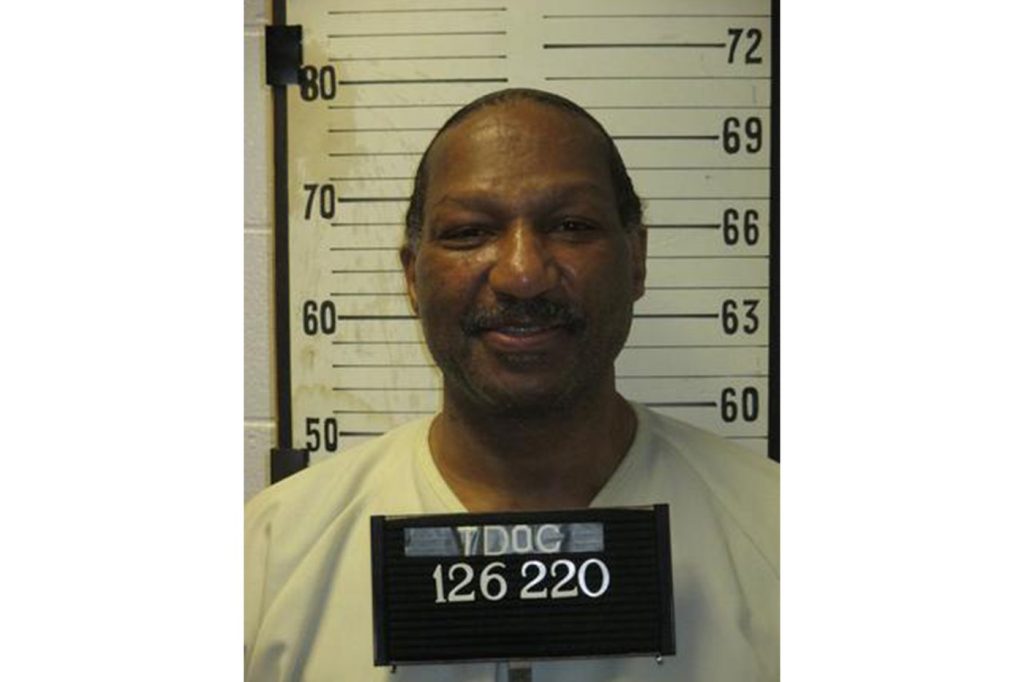NASHVILLE, Tenn. (AP) — Tennessee is preparing for an execution scheduled for Tuesday, which experts believe could be unprecedented as it would likely be the first instance of a man being put to death with a working defibrillator implanted in his chest. Byron Black, 69, is set to face execution following a lengthy legal battle. Governor Bill Lee denied a request for a reprieve, facilitating the execution despite concerns over whether the device could malfunction when the lethal injection drug is administered.
The Death Penalty Information Center reported that they are not aware of any cases where a defendant's claims regarding defibrillators or pacemakers have been similar to those of Black. Additionally, Black's attorneys state that they have not encountered comparable cases in their research.
Governor Lee asserted that courts consistently affirm the legality of executing Black, who was convicted of the murders of Angela Clay and her two daughters, Lakeisha, age 6, and Latoya, age 9. The U.S. Supreme Court declined Black's appeals on Monday, allowing the execution to proceed. This would mark Tennessee's second execution since May; the state had previously paused executions for five years due to COVID-19 and procedural errors by corrections officials.
As for Black's medical condition, he is confined to a wheelchair and suffers from several serious health issues, including dementia, brain damage, kidney failure, and congestive heart failure. His implantable cardioverter-defibrillator is designed to act as both a pacemaker and an emergency defibrillator. Black's legal team argues that deactivating the device is crucial to prevent any unnecessary pain or complications during the execution process. A trial court judge had previously concurred with this view, but the state Supreme Court later overturned the ruling, asserting that the trial judge lacked the authority to mandate the deactivation.
The state of Tennessee contests the notion that the lethal injection will trigger Black's defibrillator. According to state officials, even if shocks were to occur, Black would not experience them. However, Black's attorneys challenge this claim, asserting that while pentobarbital — the drug used for the injection — may render a person unresponsive, it does not guarantee they would be insensate or incapable of feeling pain.
Kelley Henry, one of Black's attorneys, expressed concern that the execution could devolve into a “grotesque spectacle.” The case also raises ethical questions given that most medical professionals consider participation in executions to violate healthcare ethics.
Byron Black's conviction stems from the 1988 shooting deaths of his former girlfriend Angela Clay and her daughters. Prosecutors maintain that he acted out of jealousy when he shot them in their home, and at the time of the murders, he was on a work-release program while serving a sentence for a previous shooting incident involving Clay's estranged husband. Linette Bell, the sister of one of the victims, publicly stated her belief that mercy should not be extended to Black, reflecting the sentiments held by some family members of the victims.
In recent years, Black's legal representatives have attempted, without success, to secure a hearing concerning whether he is intellectually disabled and therefore ineligible for the death penalty per U.S. Supreme Court standards. His attorneys argued that had they delayed a prior motion, Black could have benefitted from a 2021 state law aimed at preventing the execution of those with intellectual disabilities. While Nashville District Attorney Glenn Funk contended in 2022 that Black is indeed intellectually disabled, this request was denied by the judge based on a previous ruling that barred further examination of similar requests.
In addressing the intellectual disability claim, Funk highlighted that despite a prior evaluation in 2004 finding Black did not meet the criteria for “mental retardation,” the same expert later concluded that he did satisfy the criteria set forth under the new law for a diagnosis of intellectual disability. Black has also pursued a determination of competency with respect to his execution.











